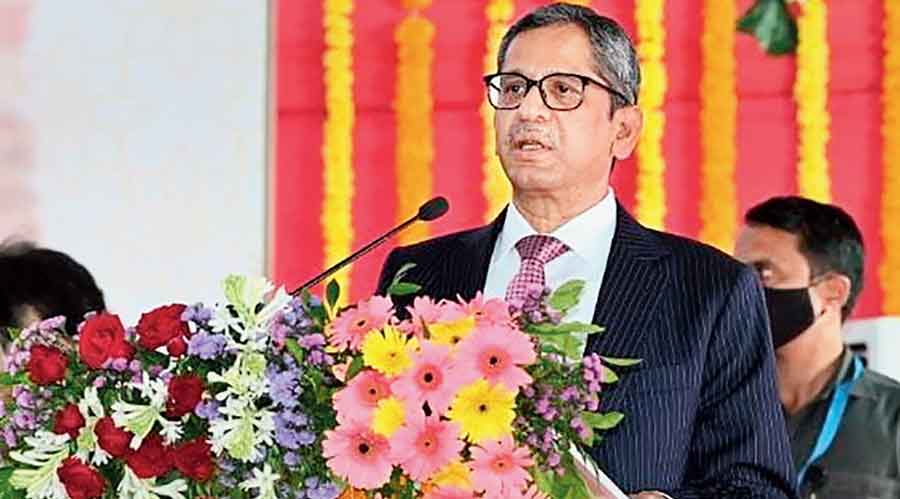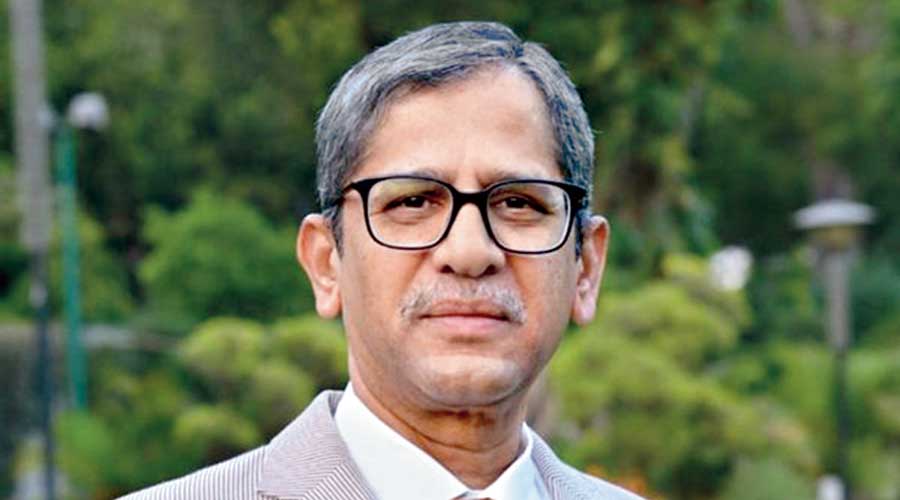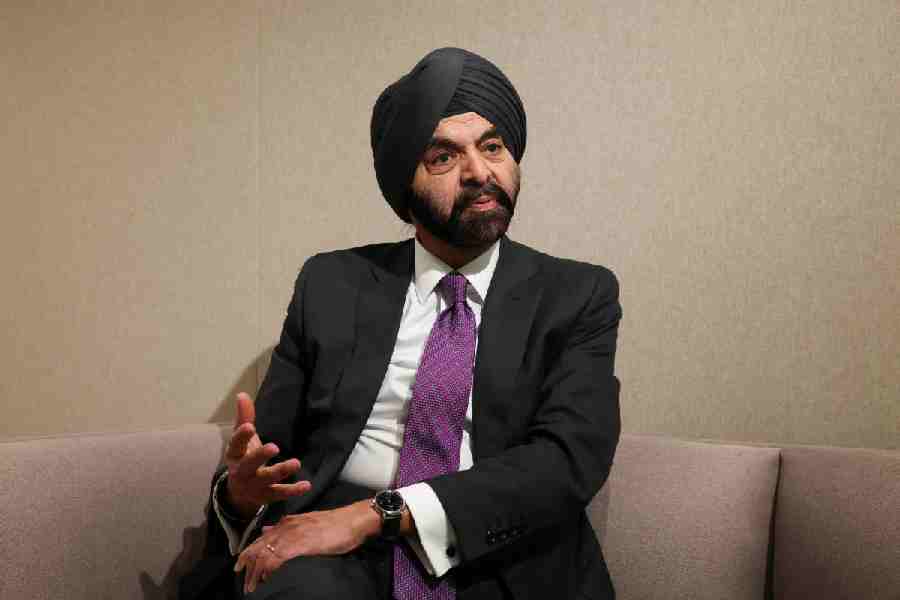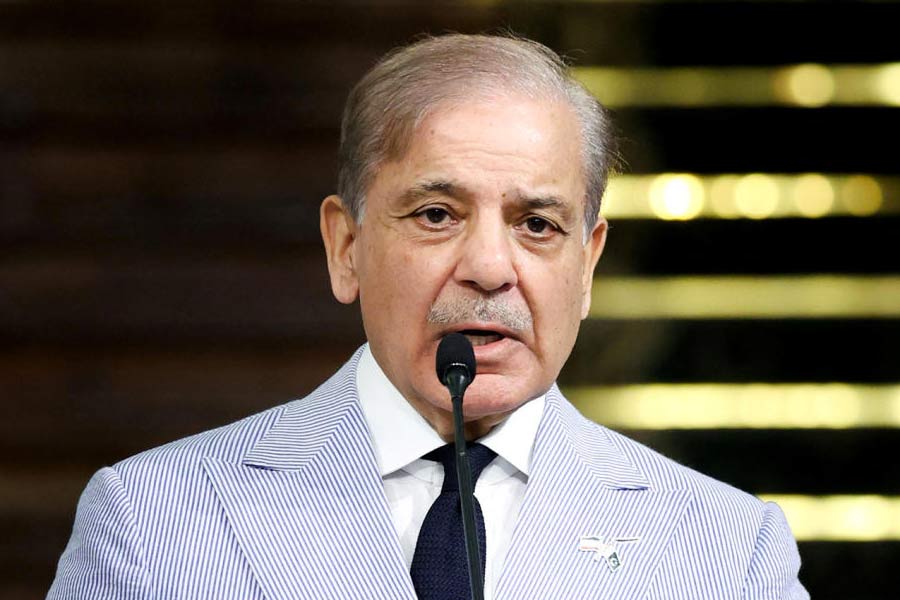Chief Justice of India N.V. Ramana on Saturday advocated financial autonomy for the judiciary, and cited research that said the failure to deliver timely justice to people had cost the country financial losses amounting to 9 per cent of its GDP.
Courts now depend on the executive for all their fiscal requirements. Justice Ramana regretted that many courts in the country lacked adequate court halls, toilets or seating arrangements, which he said was affecting the justice delivery system.
Justice Ramana, who was speaking after inaugurating a new wing at the Aurangabad Bench of Bombay High Court, cited figures to underline the lack of adequate infrastructure at India’s courts:
⚫ The sanctioned strength of judicial officers in the country is 24,280 while the number of functioning court halls is 20,143 (including 620 rented halls).
⚫ Some 26 per cent court complexes lack toilets for women and 16 per cent lack even men’s toilets.
⚫ Only 54 per cent of court complexes receive purified drinking water; just 5 per cent have basic medical facilities; only 51 per cent have a library.
⚫ Only 32 per cent of courtrooms have separate record rooms; just 27 per cent have computers on the judge’s dais with videoconferencing facilities.
Justice Ramana said: “A good judicial infrastructure for courts in India has always been an afterthought. It’s because of this mindset that courts in India still operate from dilapidated structures, making it difficult to effectively perform their function.”
“An effective judiciary can aid in the effective growth of the economy. According to international research published in 2018, failure to deliver timely justice cost the country as much as 9 per cent of annual GDP,” he said.
Cases relating to commercial disputes, land acquisition and compensation are among those that have major financial implications.
“Moreover, the impact of an under-supported judiciary is also seen on foreign investments. Without adequate infrastructure we cannot aspire to fill this gap,” Justice Ramana said.
“If we want a different outcome from the judicial system, we cannot continue to work in these circumstances. An integral aspect, in this regard, is financial autonomy of the judiciary.”
The audience included Supreme Court judges such as Justices U.U. Lalit, D.Y. Chandrachud, B.R. Gavai and A.S. Oka, Bombay High Court Chief Justice Dipankar Dutta, Union law minister Kiren Rijiju, Maharashtra chief minister Uddhav Thackeray and several legal luminaries.
“Judicial infrastructure is important for improving access to justice and to meet the growing demands of the public, (which) is more aware of its rights and is developing economically, socially and culturally,” Justice Ramana said.
“It is baffling to note that the improvement and maintenance of judicial infrastructure is still being carried out in an ad hoc and unplanned manner.”
He cited the example of the new wing he had just inaugurated.
“The need for an additional court complex at the Aurangabad Bench was identified as early as 2011.... That it has taken more than 10 years for this vision to be implemented is extremely worrisome,” he said.
“This is not the fault of any institution or organ of the State but is emblematic of a deeper structural problem that has plagued judicial infrastructure development in our country since Independence. Today’s success should not, therefore, blind us to the issues that exist.”
Justice Ramana said he had sent a proposal to the law ministry for the establishment of a National Judicial Infrastructure Authority, and urged the minister to take up the necessary legislative measures during the winter session of Parliament.
He said courts were important for any society “governed by the rule of law” and court buildings therefore ensured “the constitutional guarantee of the right to justice”.
Justice Ramana said India’s courts had repeatedly upheld the rights and freedoms of individuals when they were at the receiving end of executive excesses, providing an assurance that seekers of justice, however weak, need not worry about the might of the State.
“It’s a common notion that only criminals or victims of crime approach the court. People take pride in stating, ‘We have never seen a court building in our lifetime’. But it’s high time that we make efforts to remove the taboo associated with approaching courts for the affirmation of (people’s) rights,” Justice Ramana said.
“The common man deals with multiple legal issues during his lifetime. One must never feel hesitant to approach courts. After all, people’s faith in the judiciary is the biggest strength of democracy.”
Justice Ramana lauded Maharashtra’s contribution towards an egalitarian society, paying tributes to “the extraordinary Savitribai Phule or the pioneering feminist Jyotirao Phule, or the legendary Dr Ambedkar”.











